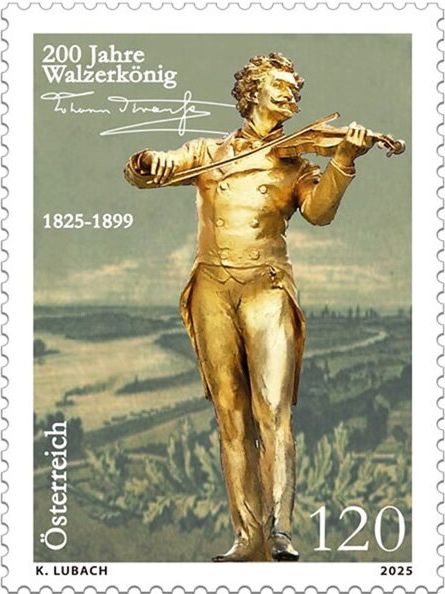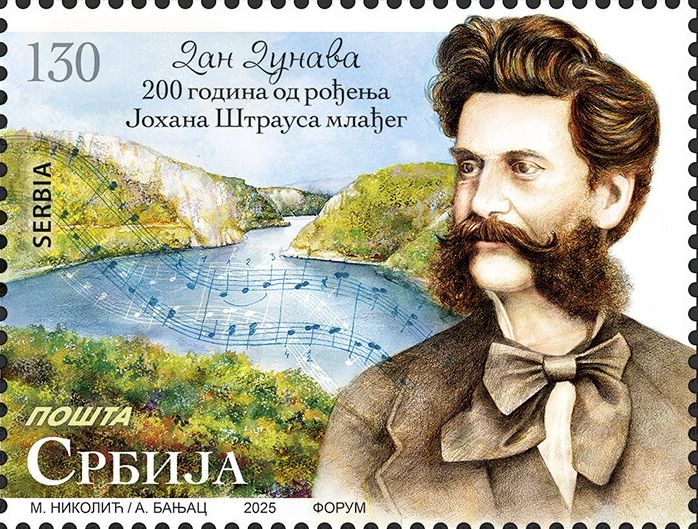The Austrian composer Johann Baptist Strauss was born on October 25, 1825, in St. Ulrich. He died on June 3, 1899, in Vienna. October 2025 marks the 200th anniversary of his birth.
Johann Strauss was nicknamed “Son” to distinguish him from his father of the same name, who feared competition within his own family and therefore actually envisioned a civil service career for his sons. Against his father’s wishes, his mother enabled young Johann to study music. Already the son’s very first performance in a Viennese concert café was a huge success. After his father’s death, he merged the two orchestras.
In 1848, Johann Strauss sympathized with the insurgents of the German Revolution. This led to some of his compositions being banned, and despite his popularity, he temporarily fell out of favor at
Johann Strauss was nicknamed “Son” to distinguish him from his father of the same name, who feared competition within his own family and therefore actually envisioned a civil service career for his sons. Against his father’s wishes, his mother enabled young Johann to study music. Already the son’s very first performance in a Viennese concert café was a huge success. After his father’s death, he merged the two orchestras.
In 1848, Johann Strauss sympathized with the insurgents of the German Revolution. This led to some of his compositions being banned, and despite his popularity, he temporarily fell out of favor at

Austria 18.1.2025

Serbia 27.6.2025
with sheet music of the waltz
“The Beautiful Blue Danube”
including the waltz “The Beautiful Blue Danube” in 1867, which is now considered the unofficial anthem of Austria.
In 1864, Johann Strauss met Jacques Offenbach, who introduced him to operetta. In 1871, he performed his first operetta, “Indigo and the 40 Robbers,” in Vienna, and in 1874, his arguably best-known operetta, “Die Fledermaus,” premiered at the Theater an der Wien. The work was added to the repertoire of the Vienna State Opera in 1894 and is the only operetta performed there to this day.
The oeuvre of the composer, internationally known as the “Waltz King,” includes twenty operettas, around 500 waltzes, polkas, and marches, as well as a ballet and an opera.
In 1864, Johann Strauss met Jacques Offenbach, who introduced him to operetta. In 1871, he performed his first operetta, “Indigo and the 40 Robbers,” in Vienna, and in 1874, his arguably best-known operetta, “Die Fledermaus,” premiered at the Theater an der Wien. The work was added to the repertoire of the Vienna State Opera in 1894 and is the only operetta performed there to this day.
The oeuvre of the composer, internationally known as the “Waltz King,” includes twenty operettas, around 500 waltzes, polkas, and marches, as well as a ballet and an opera.
The video shows André Rieu and his orchestra performing the waltz “The Beautiful Blue Danube” by Johann Strauss II., recorded live on September 16, 2011 in Vienna’s Schönbrunn Palace with dancers from the famous Austrian dance school Elmayer.